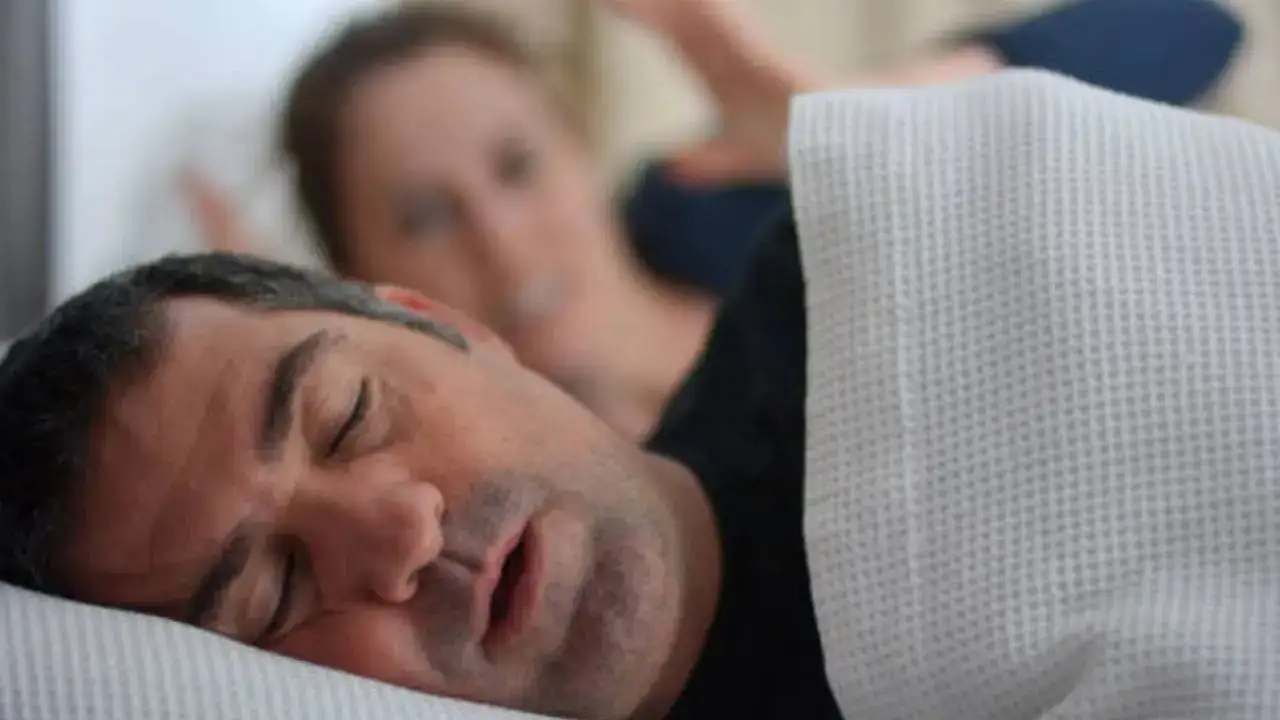Pallavi Mehra • 09 May 2025
Your Sleep Apnea Could Be Silently Destroying Your Brain, Study Warns

Your Sleep Apnea Could Be Silently Destroying Your Brain, Study Warns (Image Credits: iStock)
Sleep apnea, a common sleep disorder, could be silently damaging your brain and increasing the risk of memory-related conditions like dementia and Alzheimer’s disease, a new study suggests. Published on May 7 in the journal Neurology, the research highlights how low oxygen levels during sleep—particularly in a specific sleep stage—may be linked to harmful brain changes.
The study focused on rapid eye movement (REM) sleep, the stage when most dreaming occurs and the brain processes and stores new memories. Researchers found that people who experienced drops in oxygen levels during REM sleep had more damage to parts of the brain related to memory. The worse the oxygen drop, the more severe the brain damage.
Obstructive sleep apnea is a condition where a person’s breathing stops and starts repeatedly during sleep. This often leads to a drop in oxygen levels, which briefly wakes the brain so breathing can resume. According to the study’s senior author, Dr. Bryce Mander, an associate professor at the University of California, Irvine, these repeated drops in oxygen may harm small blood vessels in the brain. This damage may, in turn, affect areas of the brain responsible for memory.
“Sleep apnea becomes more common as people age. If left untreated, it could reduce the brain’s ability to function properly,” Mander said. “Our study found that low oxygen levels during REM sleep are linked to memory problems and may lead to cognitive decline.”
The research team examined 37 adults with an average age of 73, 24 of whom had sleep apnea. They conducted brain scans and monitored the participants' sleep. The scans showed that people who had lower oxygen levels during REM sleep had more damage to white matter in the brain. White matter is crucial for sending signals between different brain areas and plays a big role in memory and learning.
The study also found that the more time participants spent with oxygen levels below 90% during sleep, the more damage was seen in their white matter. Additionally, those with greater white matter damage also had shrinking in key memory-related areas of the brain, such as the hippocampus and the entorhinal cortex. Participants with more shrinkage in these areas performed worse on memory tests.
While the study points to a strong link between sleep apnea and brain changes that affect memory, researchers caution that it does not prove a direct cause. However, the findings help explain why untreated sleep apnea may speed up memory decline as people age.
The researchers hope their work will encourage more people—especially older adults—to get evaluated for sleep apnea. Early treatment could protect not only overall health but also brain function.
Get Latest News Live on Times Now along with Breaking News and Top Headlines from Health and around the world.